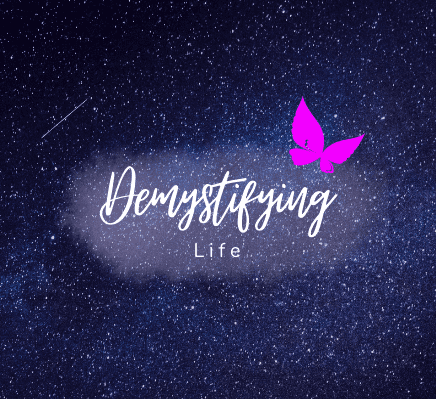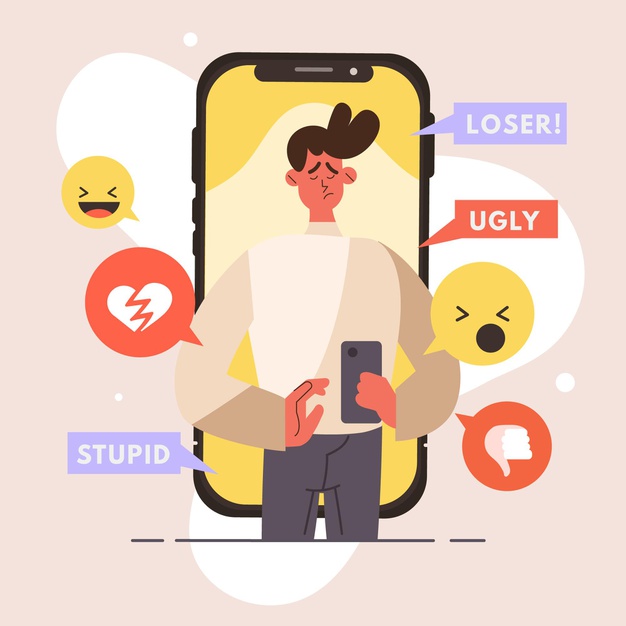It is quite amusing that millennials have experienced both analog and digital eras. The Internet emerged in the US in the 1970s. But was made open to the public in the 1990s. In India until 1995, no one knew what the internet was and what were its purposes. Today more than 5.3 billion people have access to the internet. But if you study statistics, about 61% of the population in the world uses the internet only to surf on social media sites. What’s their motto? Only to like, dislike, comment, and share the posts. But the worst reality is people like criticizing others on social media.
According to Oberlo.in, Facebook is one of the ruling social media platforms in the entire world. About 71.43% of US adults and around 315 million people in India use Facebook. Apart from that, various apps like Instagram, YouTube, Whatsapp, Twitter, and Snapchat are also doing the rounds. Amongst these apps, Instagram has gained momentum in the last few years and is expected to grow by 28% by 2025. Only a smaller percentage of users use these apps for business purposes. But others use them only for entertainment purposes.
The usage of social media has become addictive beyond imagination. An average individual spends around three hours daily on the internet. And that is only to check out what’s going on in others’ lives. But why do Gen Y and Gen Z indulge in spreading rumors, hatred, and violence on such platforms? And all these negative actions aim only at criticizing others on social media. Let’s pinpoint some of the reasons here.
The Exception
There are some highly qualified people who like to enlighten others with their wisdom. They make efforts only to make people understand the real gist of the topic. However, they make use of subtle words and conform to the rules of communication on social media. There is no employment of harsh or critical words directed towards hurting the recipient. That is the correct way of getting your point across.
Now, let’s talk about the negative mindset of the people that makes them critical of others—your answer to why people like criticizing others on Social Media.
They are seeking attention
Criticizing others on social media is way too easy and convenient. Also, social media owners do not take any effective steps to control the spread of negativity. According to an article on intechopen.com, people in the age group of 10 to 34 commit suicide due to cyberbullying. Statistics show suicide to be the second leading cause of death among US adults. Whereas, in India, 17% of the population die because of suicide; and the majority of them are in the age group of 15 to 39.
So, if you study the mindset of negative people, you’ll realize that their intention is only to distract you from the main issue. It is only to draw your attention to their comments. They feel that the more you reply to their comments, the more they will receive attention. And this is true in most cases. But the one who is the victim of intimidation goes through a lot of mental trauma. And the attention seekers never understand the victim’s pain.
To change your image in the eyes of the public
It is very simple when you share your opinions on your page, you will be judged. Judging itself means that you’ll be divided into categories. For instance, if you have a favorable opinion about a political movement, then the (public) supporters will stand by you.
But when you put across a negative opinion, you will be criticized. And the criticisms are way too harsh. That may directly influence your public identity.
To show off their knowledge
Who doesn’t like showing off? Everybody shows off on their social media profile. But sharing your insights and giving knowledge about something should be done humbly.
Instead, people abase others by criticizing them. Making people aware of something and sharing knowledge is a very thoughtful activity. One should not criticize someone’s post. Or put across a negative opinion. You can be modest and make use of a soft tone to get your message across.
Maybe you aren’t responding in their favor
Various online posts stir up violent behavior among youngsters. And in that process, many form their views. They post their views online and garner publicity. Friends often support each other, but strangers do not.
So, if you are not a friend and you respond negatively to their posts, you will be either trolled or criticized. It is not bad to have a different opinion. However, criticizing others on social media is highly inappropriate. Furthermore, it also harms your mental make-up.
They want to reduce your followers
Believe it or not, there is competition for followers. The more followers, the better your public image. But people who do not like you will always post something negative about you.
Imposters use vile tricks to malign your identity. One of them is posting negative comments. They carry out such activity intending to reduce your followers. Many famous personalities and movie stars often fall prey to such indecent activities.
They are hurt and hence venting on you
It’s a digital world where no one ever considers your efforts. People are least bothered about the struggles you have taken to reach a particular position in society. Trolling takes the lead if your posts do not comply with the set standards of the cyberbullies.
It’s quite common in a democratic country. Where you are free to open up without any hesitation. Though some countries have been termed as partly free by Freedom House (a US Non-profit organization), people still support widespread criticisms. Venting on someone without any admissible proof is like firing aimlessly in the dark. If you are hurt by someone’s actions, take it in the right spirit. Look for amicable solutions and keep it off social media.
They like to overpower others
Intimidating others is a behavioral pattern that most negative people carry. They seek some strange satisfaction in bullying others. When it comes to online bullying, the only difference is that it’s not done in person, it’s done publicly.
When you harass someone online, you are trying to overpower them. This mysterious feeling of satisfaction makes you criticize others consistently. But when you try doing this often, your personality traits change drastically. And in the long run you will start losing friends and loved ones due to your denouncing behavior.
People like criticizing others on social media because they want you to feel vulnerable
When someone wants to take control over you, they will make you feel vulnerable. They only wish to make you feel depressed. So that you’ll go back to them asking for help. Not everybody who criticizes you is bad. But when someone uses foul language and passes derogatory comments, they do have evil intentions.
It is up to you to decide whether you wish to take their comments in stride or become rebellious. In most cases, the criticisms never end. And once people start enjoying your vulnerability, they will never respect you again on the same platform.
People like criticizing others on social media to satisfy their ego
It is one of the common reasons to criticize others not only on social media but also in other walks of life. When you hurt someone’s ego, they will take up every possible opportunity to hit you back.
Maybe you did not hurt their ego purposefully. But if the negative person will resort to criticizing you. It’s like playing with a boomerang, “You hurt me, I hurt you”. And criticizing others on social media has been prevalent for years. People exploit the power of free-expression mainly for two reasons, just to satisfy one’s ego and boost self-conceit.
People like criticizing others on social media when they are trying to cover their wrongdoing
When you desperately wish to shift the public’s focus on some other agenda, you criticize others. When you have done something wrong, you will try to cover it up with some other idea.
So, sometimes, people do have malicious intentions of keeping their bad actions hidden. Hence, they either troll or post negative comments about other people to silence their guilt.
Conclusion
Criticisms are harsh and the purpose of criticizing others never aims at doing something good. If you criticize someone, make sure you use soft words. You must keep the tone neutral and do not emphasize demoralizing the recipient. I believe people must follow the proper code of communication on social media. It will help us to mitigate cyberbullying, and also reduce the damage to mental health.



